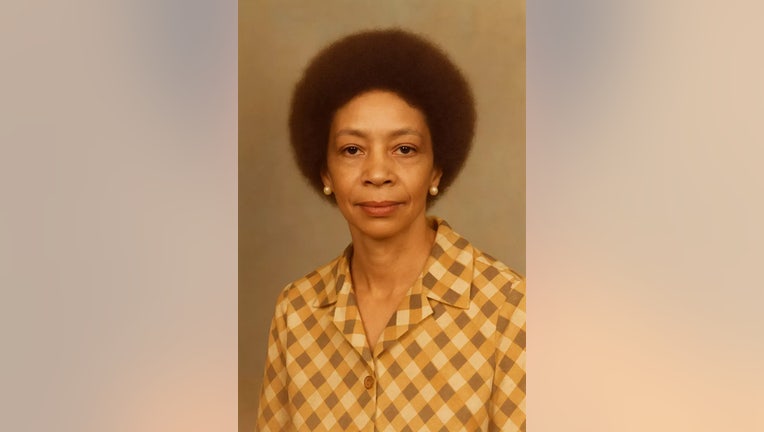Dismembered grandma's body found in San Jose field in 1981 identified

An AI generated image of Vivian Moss, based on family photos. Photo: Santa Clara County District Attorney's Office.
SAN JOSE, Calif. - The Santa Clara County District Attorney's Cold Case Unit announced on Tuesday the remains of a 54-year-old woman whose dismembered body was found in San Jose nearly a half-century ago.
The body of Vivian Moss was found on July 11, 1981, in an empty field where the VTA Berryessa Transit Center and BART Station parking structure is now located, prosecutors said.
She had no identification, but investigators found two religious pendants near her body.
The cause of death was ruled a homicide from multiple stab wounds to the chest, and dismemberment.
Prosecutors have yet to publicly identify who killed her.
But they did mention that Moss was a follower of Mt. Zion Spiritual Church.
Family members told the DA's Office that she was close to the church's leader, Louis H. Narcisse, who died in 1989.
She may have worked at an elementary school in Oakland before she was murdered.
"One day soon, I hope we will know the depraved person who took her life and left her in a field, hoping she would be forgotten," Jeff Rosen, Santa Clara County District Attorney, said in a press release
The DA's office in 2023 partnered with forensic genealogists at Parabon NanoLabs to identify the remains.
Parabon's researchers hypothesized that the victim was likely Moss, who was born in Arkansas in 1927.
DA investigators located and interviewed Moss's granddaughter in 2024, who said that in the early 1980s, Moss was supposed to pick her up and stay the night at her home. Moss didn't show up, and the woman never saw her grandmother again.
Investigators for the DA's office concluded, based on Parabon's genealogical comparison between the remains and Moss's granddaughter, that the victim was Vivian Moss.
CeCe Moore, chief genetic genealogist at Parabon explained the process of using DNA from the remains to create a complex profile that is then compared against samples that have been uploaded to two genealogy databases; GedMatch and Family Tree DNA.
Moore said this case posed a unique challenge because the publicly available databases have fewer submissions from African Americans.
"It's especially difficult with the African American population group because we have far less representation in the databases that we're allowed to use...limited to the two smallest databases...can be extremely difficult. In this case we got pretty lucky, got some pretty good matches that I was able to work with, build those family trees between different sets of matches," Moore said.
KTVU's Alex Savidge contributed to this report.
Featured
Decades-old San Francisco cold case prompts $100k reward in renewed effort
Authorities are bringing renewed attention to a homicide in San Francisco more than 30 years ago that has since gone cold, offering a $100,000 reward for information that leads to the arrest and conviction of a suspect.


